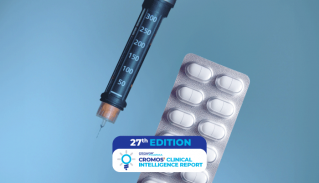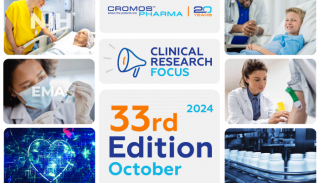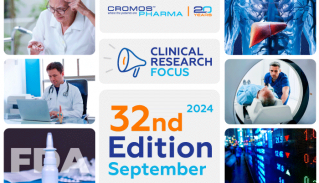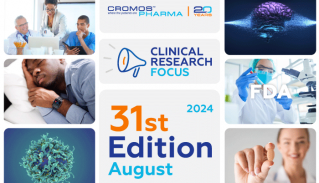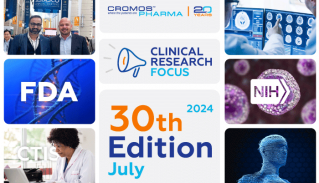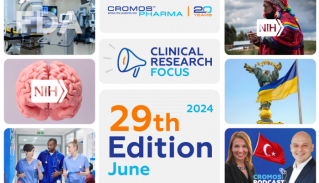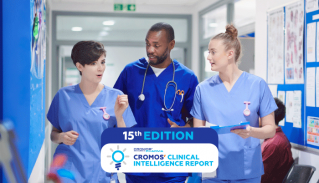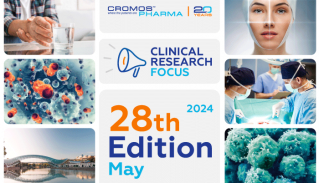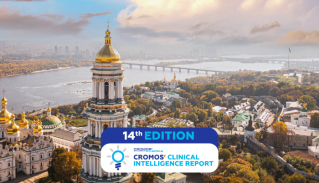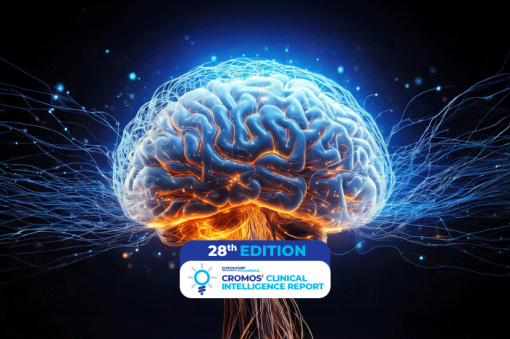
AI in Clinical Trials: 8 Groundbreaking Innovations That Defined the Year
As the new year unfolds, the field of clinical research is charging forward with a wave of powerful innovations, driven by the integration of artificial intelligence. In the past year alone, AI has demonstrated its potential to redefine key aspects of drug development—from patient recruitment to protocol optimization. These innovations are not just enhancing efficiency but are also enabling more accurate, personalized, and cost-effective clinical trials.
At Cromos Pharma, we remain dedicated to leveraging these innovations to optimize clinical research processes, ensuring that we stay at the forefront of this rapidly evolving industry. Below, we explore 8 groundbreaking innovations that are set to define the future of clinical trials in 2025 and beyond.
1. AI-Generated Digital Twins Transform Clinical Trials
Researchers from Unlearn.AI developed AI-generated digital twins to enhance clinical trials by predicting patient outcomes based on historical data. This technology improves trial efficiency by reducing the need for large control groups and speeding up drug development. The digital twins simulate patient responses in a virtual environment, allowing for more personalized and accurate predictions. This innovation offers a path toward more effective and cost-efficient clinical trials, increasing regulatory trust and adoption in healthcare.
2. AI Speeds Up Drug Discovery for Anti-Fibrotic Therapy
Insilico Medicine used their AI platform, Pharma.AI, to discover a novel target and design a drug for idiopathic pulmonary fibrosis (IPF) in under 30 months. This achievement, which included the completion of a Phase 0 study and the initiation of Phase 1 clinical trials, represents a breakthrough in reducing drug development timelines. The AI platform enabled target identification, molecule design, and clinical trial predictions, marking a significant step forward in accelerating therapeutic discoveries.
3. AI Revolutionizes Clinical Trial Screening for Heart Failure Patients
Researchers at Mass General Brigham have developed a groundbreaking AI tool called RECTIFIER, designed to screen patients for heart failure clinical trials with remarkable accuracy. The AI model, tested in the COPILOT-HF trial, achieved an impressive accuracy rate of 97.9% to 100%, surpassing the performance of trained research coordinators. With costs as low as $0.11 per patient, this innovative technology promises to accelerate clinical trial enrollment, making the development of new heart failure treatments quicker, cheaper, and more efficient.
4. AI Meets Organ-on-a-Chip for Next-Level Drug Evaluation
Research led by Shiwen Deng and Caifeng Li explored how combining Organ-on-a-Chip (OoC) technology with AI improves drug evaluation. OoCs simulate human organs on microchips, mimicking the physiological environment. The integration of AI allows for better data processing, predictive analysis, and high-throughput drug testing. This approach reduces reliance on animal models, speeds up drug discovery, and enables more precise personalized medicine. AI’s ability to optimize OoC data analysis marks a major breakthrough in pharmaceutical research.
5. AI Tool Speeds Up Clinical Trial Protocol Writing
Swiss startup Risklick has launched Protocol AI, a software that reduces clinical trial protocol development time and costs by up to 35%. Using natural language processing and generative AI, Protocol AI analyzes historical trial data to assist sponsors in setting variables and benchmarks before automatically drafting protocols. This tool is already being tested by biopharma Debiopharm, ISS AG, and Advanced Clinical. It aims to transform trial design and improve access to accurate therapeutic data, streamlining the entire process.
6. AI Breakthrough Identifies Drug Candidates for Rare Diseases
Harvard Medical School researchers developed the AI model TxGNN, designed to repurpose existing drugs for over 17,000 diseases, including many rare conditions with no current treatments. This innovative tool uses genomic data and clinical records to predict effective drug candidates, reducing the cost and time associated with traditional drug discovery. TxGNN can identify potential side effects and contraindications, and offers explanations for its predictions, providing transparency for clinicians and aiding in the development of more precise treatments.
7. AI-Enabled EDC Software Transforms Clinical Trial Efficiency
Clinion’s award-winning Electronic Data Capture (EDC) software accelerates clinical trial timelines by utilizing advanced AI features such as eProtocol Automation and AI Medical Coding. This AI-powered platform automates study setup, data integration, and remote monitoring, enabling faster, more accurate trials while maintaining data quality and compliance. By integrating AI, Clinion reduces manual effort and enhances efficiency, helping research teams conduct trials at a fraction of the usual time and cost.
8. AI Revolutionizes Patient Recruitment with Trial Pathfinder
Trial Pathfinder, developed by biomedical data scientist James Zou, uses AI to analyze completed clinical trials and optimize patient recruitment by adjusting eligibility criteria such as blood pressure and lymphocyte levels. By refining these criteria, the system helps double recruitment rates without impacting safety outcomes, like the hazard ratio. This AI-driven approach reduces human error and guesswork, enabling more accurate trial designs and improving patient matching, ultimately speeding up the clinical trial process.
Conclusion: Unlocking New Possibilities with AI in Clinical Trials
As we step into the new year, we anticipate even greater advancements in the integration of AI within clinical trials. The innovations discussed here are just the beginning of what promises to be a transformative era in drug development and research. From accelerating patient recruitment to revolutionizing protocol design, AI is redefining how we approach clinical challenges with efficiency, precision, and cost-effectiveness.
At Cromos Pharma, we are committed to staying ahead of the curve, leveraging these innovations to drive impactful change. The coming year holds the potential for even more groundbreaking developments, and we look forward to partnering with our sponsors to make the most of these opportunities. Together, let’s embrace the possibilities that lie ahead and shape the future of clinical research in 2025 and beyond.
To learn how Cromos Pharma can help elevate your clinical trial, contact us at inquiry@cromospharma.com. Let’s move forward into a new year of innovation and discovery.


